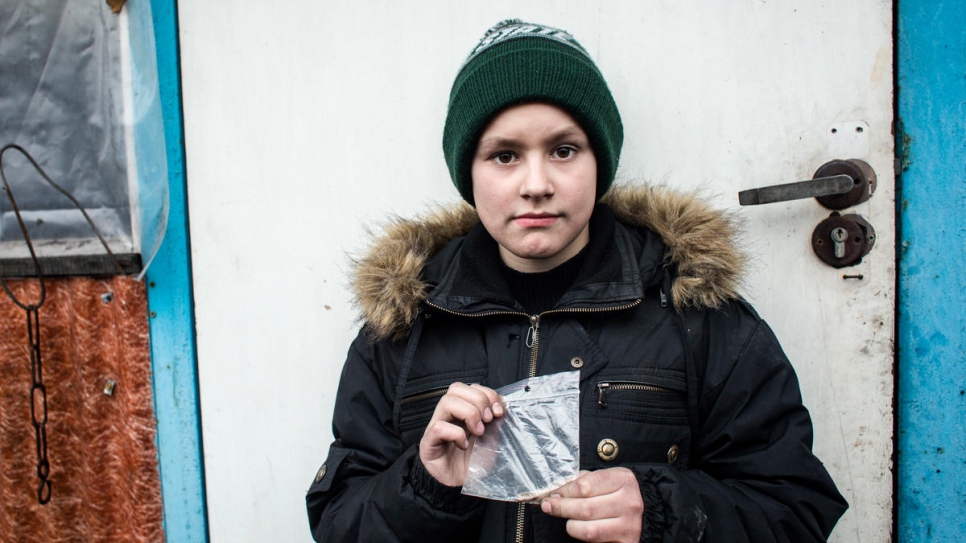Life is a daily battle for families in Ukraine conflict zone
Life is a daily battle for families in Ukraine conflict zone

It was just an ordinary day for Liuba and her son Misha in Mariinka, a town devastated by the conflict in eastern Ukraine.
They were used to the rattle of machine guns as they prepared breakfast. So when they fell silent, 10-year-old Misha ran to his grandmother’s house nearby.
Then a shell exploded without warning, Liuba recalls. “Suddenly, I couldn’t see him any more. But I heard this sound and someone screaming ‘mama’.”
The first thing she remembers seeing was blood pouring from his head, where fragments from the shell had lodged. With the nearest hospital 30 kilometres away and hostilities in Mariinka intensifying, Liuba knew there was little hope of an ambulance.
Fortunately, a relative from a nearby town was able to drive them there and Misha survived.
Now Liuba says gunfire still scares her but silence frightens her more.
Shelling and landmines have turned thousands of lives upside down, making it difficult to collect benefits, food and medicine, or find jobs.
Travelling across the line of contact is also difficult. In February 2018 alone, there were more than 1 million crossings as people met family members or used local services.
Sasha and his wife Yulia from Donetsk often cross the Mariinka checkpoint to help out his elderly parents in Ukrainian-held Avdiivka. A journey that once took half an hour by bus can now take a whole day. Seven months pregnant in freezing winter temperatures, Yulia is grateful for heated tents provided by UNHCR with the financial assistance from the European Union, where she can rest.
“We held off leaving for as long as we could.”
The childhood sweethearts can hardly believe how much their lives have changed.
“I was very happy after we got married,” says Sasha, stroking his wife’s arm. “Avdiivka was very beautiful and I was so near to my family. We held off leaving for as long as we could. But then the fighting came to our area and the vibrations shook through our bodies. The train station was packed. Suddenly, war was a real thing and it could happen to you.”
Yulia adds: “Before, we would say we wish you happiness and peace, but it was just a saying. Now we see the huge value in those words – to have peace, to live with your families.”
Sasha and Yulia are looking forward to parenthood but worry about how they will travel once the baby arrives. Many people spend hours queuing at checkpoints, with limited access to basic services such as drinking water, latrines, shelters and medical care.
“It’s tense,” says Yulia. “Everyone wants to cross as soon as they can. There are many people who try to push through the lines.”
"The worst thing is when they hit your house and it shakes.”
UNHCR is concerned about the restrictions on freedom of movement experienced by civilians.
George Okoth-Obbo, assistant high commissioner for operations who was reviewing UNHCR activities in Ukraine, witnessed for himself people queueing for hours in freezing temperatures to pass through a checkpoint.
“Easing the frequency with which people have to travel, and the trying conditions they experience, are among the most urgent challenges in this situation,” he said.
Liuba still lives with the trauma of how close her son came to losing his life. Since his ordeal, their house has been shelled four times and young Misha dreams of moving away.
“I don’t like living here because there’s shooting and I have no friends,” he says. “I am the only boy on the street. The worst thing is when they hit your house and it shakes.”
“When it happened, I wished it had happened to me and not him,” says Liuba, closing her eyes. “It made him grow up so quickly.”
ENDS
Read the report









